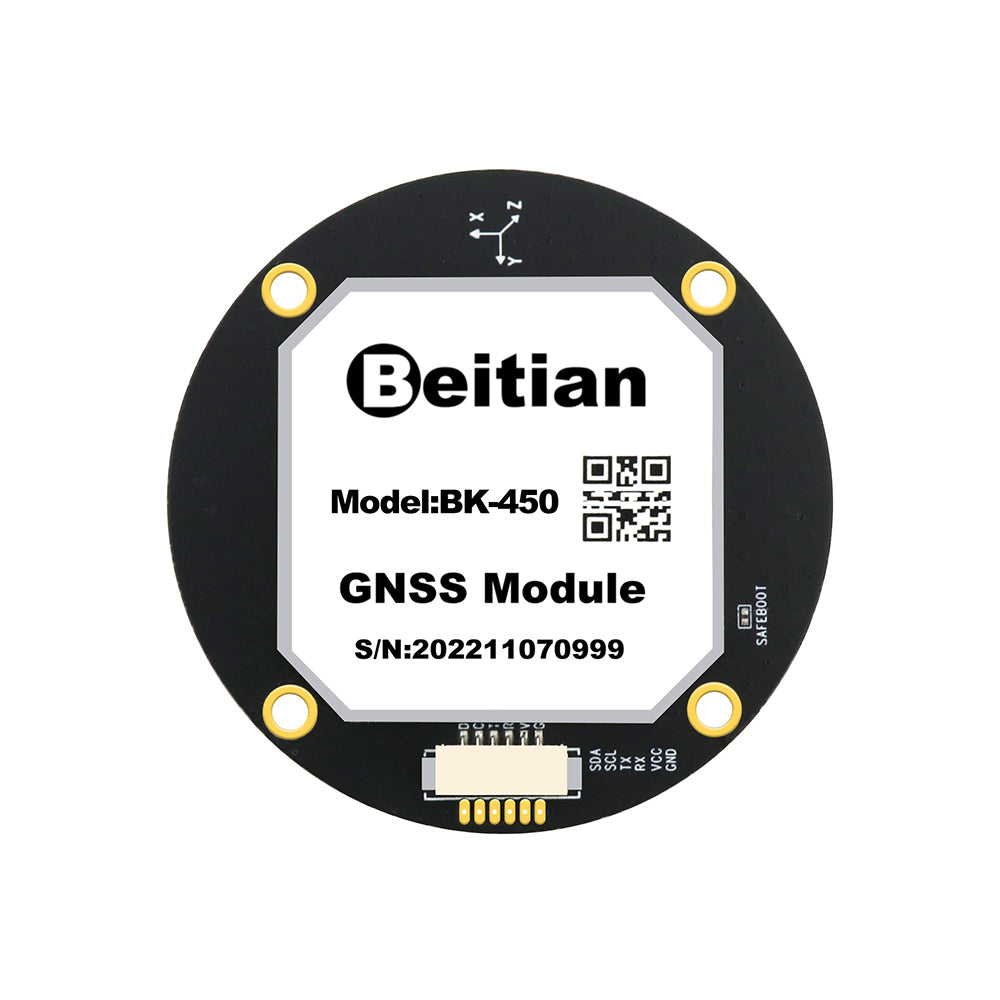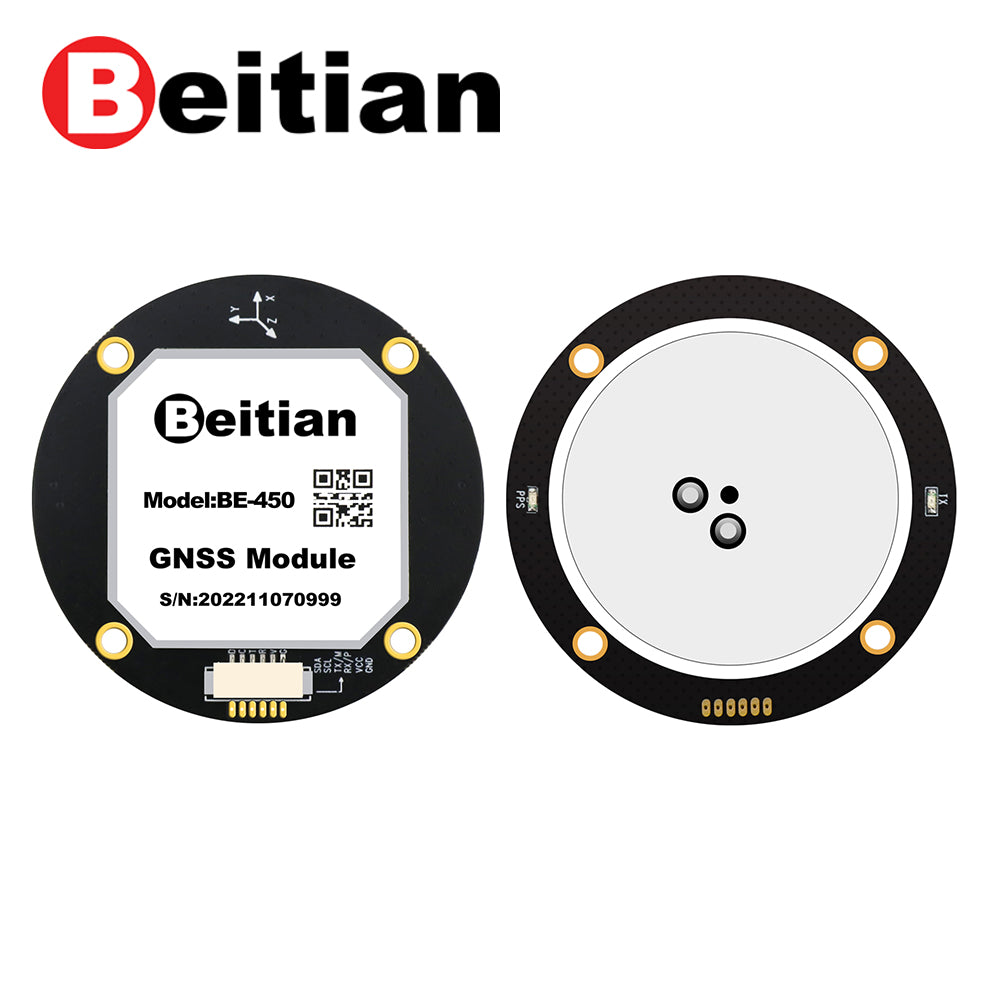
Five tips teach you how to choose a GPS module
Introduction: The GPS module has a wide range of uses. In our daily life, we often come into contact with positioning, navigation bar, historical track, laser ranging, etc., so how should we choose the GPS module?
The GPS module is an integrated circuit chip equipped with RF radio frequency chip, wifi chip and key CPU, plus related peripheral circuits. So how do we choose the GPS module?

(Beitian Beitian GPS module BK-450)
1. Better receiving sensitivity
Receiving sensitivity is the minimum signal transmission power at which the receiver can accurately extract useful signals. The better receiving sensitivity of the GPS navigation module enables the wireless communication equipment to have a stronger ability to capture weak signals. In this way, as the transmission distance increases, the received signal weakens, and the highly sensitive wireless communication equipment can still obtain data, maintain a stable connection, and greatly increase the transmission distance.
2. Fast positioning time
The positioning time refers to how long the GPS device will automatically and gradually clarify its own positioning, generally in seconds. When this time is exceeded, the GPS device will send a signal to the GPS positioning communication satellite to gradually clarify its own positioning. And it includes the first run, cold start, hot (warm) start positioning time. Whether it is car navigation or navigation maps in mobile phones, they are all built on the premise of being equipped with a GPS module. The shorter the positioning time, the easier it is for the data test to be recognized by the technical engineer.
3. Position accuracy
Position accuracy refers to the degree of satisfaction of the indoor space positioning point to obtain the plane coordinates rather than the real plane coordinates. Strong positioning accuracy is the basis for GPS positioning module customization. If the positioning accuracy does not achieve practical results, no matter how gorgeous the GPS module design is, people will not like it. Naturally, different types of navigation environments must first consider the application situation, and then consider the external factors.
Positioning accuracy can be understood from the premise of static and dynamic, and the actual effect of dynamic positioning is better than that of static data positioning. The positioning parameters specified by the GPS module are measured in a completely open sky with a good signal. Therefore, it is difficult to achieve standard positioning time and positioning accuracy in conventional detection.

(Beitian Beitian GPS module BE-450)
1. Better receiving sensitivity
Receiving sensitivity is the minimum signal transmission power at which the receiver can accurately extract useful signals. The better receiving sensitivity of the GPS navigation module enables the wireless communication equipment to have a stronger ability to capture weak signals. In this way, as the transmission distance increases, the received signal weakens, and the highly sensitive wireless communication equipment can still obtain data, maintain a stable connection, and greatly increase the transmission distance.
2. Fast positioning time
The positioning time refers to how long the GPS device will automatically and gradually clarify its own positioning, generally in seconds. When this time is exceeded, the GPS device will send a signal to the GPS positioning communication satellite to gradually clarify its own positioning. And it includes the first run, cold start, hot (warm) start positioning time. Whether it is car navigation or navigation maps in mobile phones, they are all built on the premise of being equipped with a GPS module. The shorter the positioning time, the easier it is for the data test to be recognized by the technical engineer.
3. Position accuracy
Position accuracy refers to the degree of satisfaction of the indoor space positioning point to obtain the plane coordinates rather than the real plane coordinates. Strong positioning accuracy is the basis for GPS positioning module customization. If the positioning accuracy does not achieve practical results, no matter how gorgeous the GPS module design is, people will not like it. Naturally, different types of navigation environments must first consider the application situation, and then consider the external factors.
Positioning accuracy can be understood from the premise of static and dynamic, and the actual effect of dynamic positioning is better than that of static data positioning. The positioning parameters specified by the GPS module are measured in a completely open sky with a good signal. Therefore, it is difficult to achieve standard positioning time and positioning accuracy in conventional detection.

